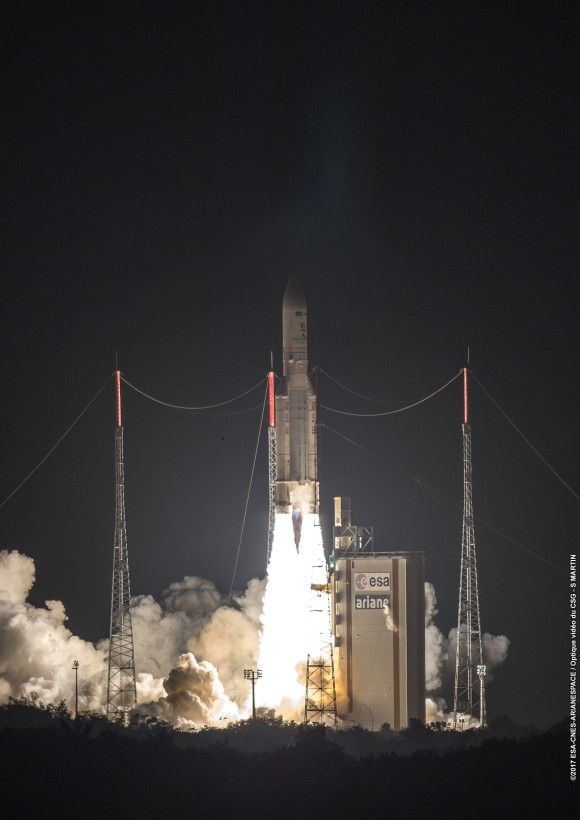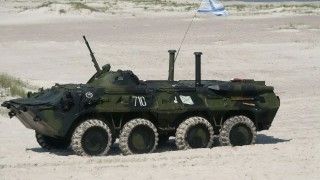- WIADOMOŚCI
- ANALIZA
Minsk 2 - Success of Diplomacy or Ukraine's Capitulation?
It was on Thursday, when all-night negotiations began. These talks, regarding the cease-fire in Ukraine, have been realized in so called “Normandy format”. After 14 hours of dialogue, leaders of France, Germany, Ukraine and Russia came to a conclusion regarding the Donbas area. Considering the media-noise that has been created around the above mentioned events, the party which will successfully impose its narrative may become the winner of the process.
Stance of the Ukrainian diplomacy, right after the Minsk memorandum, may be defined as “careful optimism”. The Ukrainian media are trying to point out the positive results of the memorandum, while the social media are full of pessimism. The main argument present in the social media discourse is, that the memorandum would be short-lived, due to the fact that earlier the Russians had claimed one thing, and their acts were completely contradictory. Vitalii Chepynoga, Ukrainian politician and a facebook celebrity, famous for his sarcastic comments on the current state of affairs, compared the Kiev’s official narrative which is being told in a carefully optimistic manner, to the last time when the Ukrainian sportsmen have been participating in the Olympic Games: “no medals have been gained, but nobody has drowned as well”.
Lack of a shared report on the memorandum or even the fact that no press conference has been held after the negotiations were finished are quite telling as well. It shows that the agreement, which would be satisfying for all of the parties, is actually quite far away. The individual leaders, who have attended the Minsk summit, virtually marked their presence only in their own national media, right after the event. As if each of the leaders had a different point of view, regarding the achieved “compromise”. There is yet one another dimension – any perspective of freeing the Ukrainian prisoners within 19 days would be a great success, which could be skilfully utilized by the media. However, discussions related to autonomy and funding of the separatists-ruled territories from the Ukrainian budget are not the most fortunate topics, in the eyes of the Ukrainian taxpayer. As it has been noted by Adam Eberhardt, the Ukrainian parliament needs to introduce amnesty for the Separatists, regulate the funding procedures regarding the Donbas area, or even change the constitution. And no reciprocal guarantees have been made on the other side.
Minsk Memorandum has been perfectly summed up by Ievgen Vorobiov, working for PISM (Polish Institute of International Affairs). The provisions of the agreement reached include the following issues:
- cease-fire in some areas of the Luhansk and Donetsk regions will start at 0:00 AM on 15th February;
- heavy artillery needs to be withdrawn from the demilitarized zone, after 2 days, starting from the moment when the cease-fire status is reached. The whole withdrawal procedure needs to be completed in 2 weeks;
- OSCE is to monitor and verify the cease-fire, however, relevant radars will not be deployed soon, and neither declarations have been made regarding the increased number of personnel in the war-zone, nor the qualifications of such personnel have been described;
- within 30 days the Ukrainian parliament is to adopt relevant regulations, aim of which would be to establish “special regimes of local governments” within the specific territories;
- another legislative rule is to introduce amnesty for “all the people involved in the events that take place in Donetsk and Luhansk regions” (neither further specification regarding the level of the amnesty, nor criminal case procedures have been clarified here);
- all of the “hostages” and “persons kept in the custody illegally” are to be released, in line with “all for all” rule (the agreement does not indicate it exactly, whether e.g. Nadiya Savchenko would be a subject of this provision, no institutions which are to be responsible for the process of prisoner exchange have been indicated as well);
- possibility of providing humanitarian aid needs to be provided (no mechanisms have been developed regarding the given areas, Russia will still be able to send its “humanitarian aid convoys”);
- conditions regarding the full renewal of the socio-economic connections of Luhansk and Donetsk Oblasts and Ukraine, including inclusion of these areas in the Ukrainian social structure, need to be provided (this provision does not indicate precisely the specific commitment on the Ukrainian side, however, it leaves no room for any alternative solutions, thus it may become a serious moot point);
- Ukrainian government is to regain full control over the state borders within the whole conflict area (which is to happen after local elections, which are to be organized in line with the Ukrainian law, until the end of 2015);
- All “foreign armed groups”, military equipment and mercenaries are to be withdrawn under supervision of OSCE (however, no specific deadline or monitoring mechanisms have been specified within that scope);
- A “constitutional reform” is to be carried out by the Ukrainian parliament, along with adoption of a new constitution by 2015 (reinforcement of decentralization of the authorities, considering “uniqueness of some of the Donbas regions”, taking into account the special “status” for these regions, guaranteed by the Ukrainian legislation, taking multiple conditions into account, including: self-definition of language, economic cooperation with Russia or granting approval for “creation of militia units by the local authorities”, which, actually, will provide Russia with some room for action, once the “foreign armed groups” are withdrawn);
- Local elections are to be organized in the occupied areas within the framework of the Tripartite Contact Group. The process is to be carried out under the supervision of the OSCE Office for Democratic Institutions and Human Rights (considering the fact that control over the borders will not be regained, and that the “foreign armed groups” will not leave the Ukrainian territory, it would be hard to expect that such elections would be “free and just”);
- A work-group is to be set within the framework of the Tripartite Contact Group, in order to implement the memorandum properly.
On the other hand, Serhiy Sydorenko, who summed up the memorandum in the “Ukrainian Pravda” newspaper, states that the answer to the question, whether the Ukrainians have “won” the Minsk summit, is ambiguous. It is certain though that “Russia simply did not want to sign this document”. Sydorenko claims that, throughout the whole night, the Russians did everything to interrupt the meeting, while the Europeans tried to explain why Russia, along with Putin, is considered to be the guilty Party, the bully, in the discussed conflict once again. Sydorenko adds that it is important that the current memorandum has no effect on the previous one, which had been signed in September 2014. The author considers this fact to be one of the Kiev’s greatest diplomatic successes, since the Kremlin has been willing to change that previous memorandum throughout the last couple of months. This is important, due to the fact that going back to the earlier memorandums, or modification of these, would stand in contradiction with all the efforts made by the US and the EU throughout the last couple of months.
However, Sydorenko also points out the issues, in case of which the Ukrainians have been defeated: loss of the central government control over the occupied regions, introduction of amnesty for the terrorists or even considering the terrorists as “legitimate authorities”. The author also notes another issue – when it comes to the problems above, Poroshenko simply did not get enough support from Berlin and Paris in that dimension Sydorenko also reveals, citing anonymous sources, that the original agreement had included a different ceasefire date than 15th February. Originally, the ceasefire clause was to be in force “immediately” (midnight, 12th February). However, due to the Debaltseve conflict, Russia did not agree to such conditions. Even Putin himself, during his statement made at the press conference taking place after the negotiations, was to claim that he knows the situation in the Debaltseve region better than the Ukrainian authorities. The plan now is to take over this area in two days, hence we may expect that the fights will intensify, before the ceasefire deadline. It is a key condition, which needs to be met in order to gain complete control over the Donbas area, before the memorandum is in force.
Sydorenko, similarly to most of the Ukrainian analysts, commentators and journalists, does not believe that the terrorists will be acting in line with the peace deal. According to the Ukrainian media the separatist forces will do everything they can in order to breach the agreement, and blame the Kiev authorities for that. In the summary Sydorenko claims that “Kiev has been forced to back off, regarding many of the statements it has made, and this happened largely due to the French-German duo”. In Sydorenko’s eyes, Lithuanian President, Dalia Grybauskaite, has described the memorandum most accurately: „it is weak. Its main part is related to control of the borders. This has not been done and agreed on earlier on”. Sydorenko also notes, that Kiev did not fail – even though operational control over Donbas has been lost, there is a chance that the combat activities, that have led to deaths of thousands of Ukrainian soldiers and civilians and that have destroyed the Ukrainian economy, will finally come to an end. One should interpret the Minsk events as a chance, an attempt. Whether it will be successful or not – this is yet to be seen.
Nerijus Maliukevičius from the University of Vilnius, quoted by Delfi.lt website states: “It sounds like Minks No. 2, which in itself shows that the first try was not enough. Hence a grain of salt about Minsk No. 2 as well. Angela Merkel had said the same thing even before the meeting: general mistrust is widespread and devil's in the details. As we have seen, agreements are easy to sign and announce, but the problem is to implement them. There was the first Minsk agreement [ceasefire deal reached last September], but, ironically, talks of ceasefire were drowned by sounds of gunfire.” We should notice that on the day when the talks started, at least 49 persons were declared KIA, while during the process 50 tanks, 40 rocket launchers and 40 APC’s have crossed the Ukrainian border.
Former Minister of Foreign Affairs, Bartłomiej Sienkiewicz, who has just become a new director of the Civic Institute, which is the Polish Civic Platform [Platforma Obuywatelska] think-thank notes that “for the first time ever since the WW2, the issues related to the European security have been discussed without any contribution on the side of the US”. Considering the stage at which the Russian operations are now, experience gathered throughout the last couple months, and, generally, the Russian methodologies, one could specify: “attempts have been made to discuss the issues related to the European security”. 76 years ago, Europe also had tried to finish the war without any US involvement.
Adam Lelonek, PhD
















